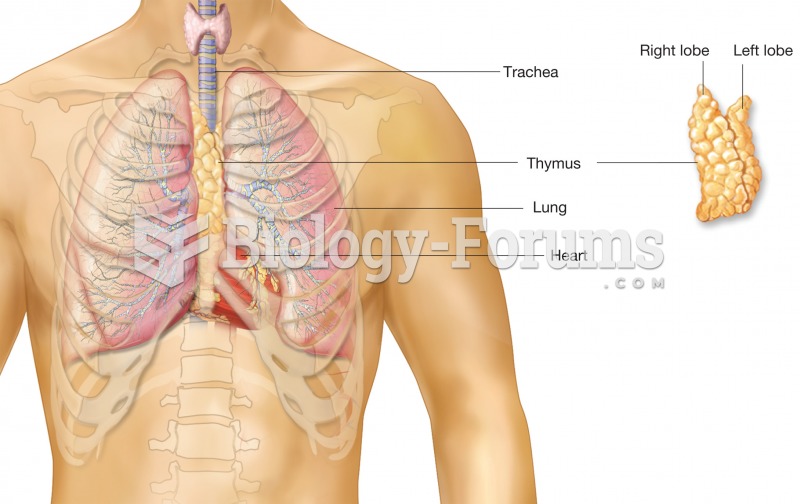|
|
|
As of mid-2016, 18.2 million people were receiving advanced retroviral therapy (ART) worldwide. This represents between 43–50% of the 34–39.8 million people living with HIV.
One way to reduce acid reflux is to lose two or three pounds. Most people lose weight in the belly area first when they increase exercise, meaning that heartburn can be reduced quickly by this method.
Lower drug doses for elderly patients should be used first, with titrations of the dose as tolerated to prevent unwanted drug-related pharmacodynamic effects.
Approximately 15–25% of recognized pregnancies end in miscarriage. However, many miscarriages often occur before a woman even knows she is pregnant.
The tallest man ever known was Robert Wadlow, an American, who reached the height of 8 feet 11 inches. He died at age 26 years from an infection caused by the immense weight of his body (491 pounds) and the stress on his leg bones and muscles.
 The thymus gland. This gland lies in the mediastinum of the thoracic cavity, just above the heart. I
The thymus gland. This gland lies in the mediastinum of the thoracic cavity, just above the heart. I
 Cardiac pacemaker. The pacemaker device is implanted beneath the skin near the heart, and the electr
Cardiac pacemaker. The pacemaker device is implanted beneath the skin near the heart, and the electr





